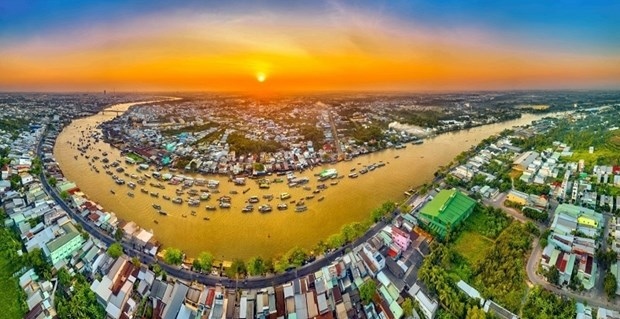Plan issued to carry out 2021-2030 Mekong Delta planning
Deputy Prime Minister Tran Hong Ha has signed a decision to issue an implementation plan serving the Mekong Delta region planning for 2021 – 2030, with a vision towards 2050.
One of the key tasks set out in the plan is to develop a high-value and high-efficiency agricultural economy.
Regarding the development of the key agricultural value chains, by 2025, the focus is on forming eight agricultural centres in areas with favourable conditions in terms of infrastructure and water resources. These include a comprehensive central hub in Can Tho city, which is linked with the development of logistic services in neighbouring Hau Giang province. Seven key hubs for collecting, classifying, and processing farming produce will also be developed, with two of them located in An Giang and Dong Thap provinces and associated with the freshwater ecosystems (freshwater aquaculture, fruits, and rice); three in Kien Giang, Ca Mau, and Soc Trang provinces for aquaculture; and two in Tien Giang and Ben Tre provinces serving fruit and vegetable production.
By 2030, the plan will see the construction of these hubs completed and closely linked with a harmonious investment in the region’s transportation infrastructure and irrigation systems.
According to the plan, it is necessary to build urban systems, economic zones, industrial zones, and industrial clusters in the four local development corridors and dynamic development areas, with a focus on enhancing concentration and density; as well as to develop processing, supporting, high-tech, and information technology industries.
Also important are attracting investment to the development of highly competitive processed exports; and conducting human resources training plans serving the industrial production across localities suitable to each period.
Another key task is to build the region into a good living environment and an attractive destination via improving the quality of urban and rural infrastructure, education and training, health care, and tourism services, among many others.
The Mekong Delta is also set to devise a flood risk management strategy for itself until 2100 to determine long-term orientations and solutions for land subsidence, climate change, and rising sea levels.

